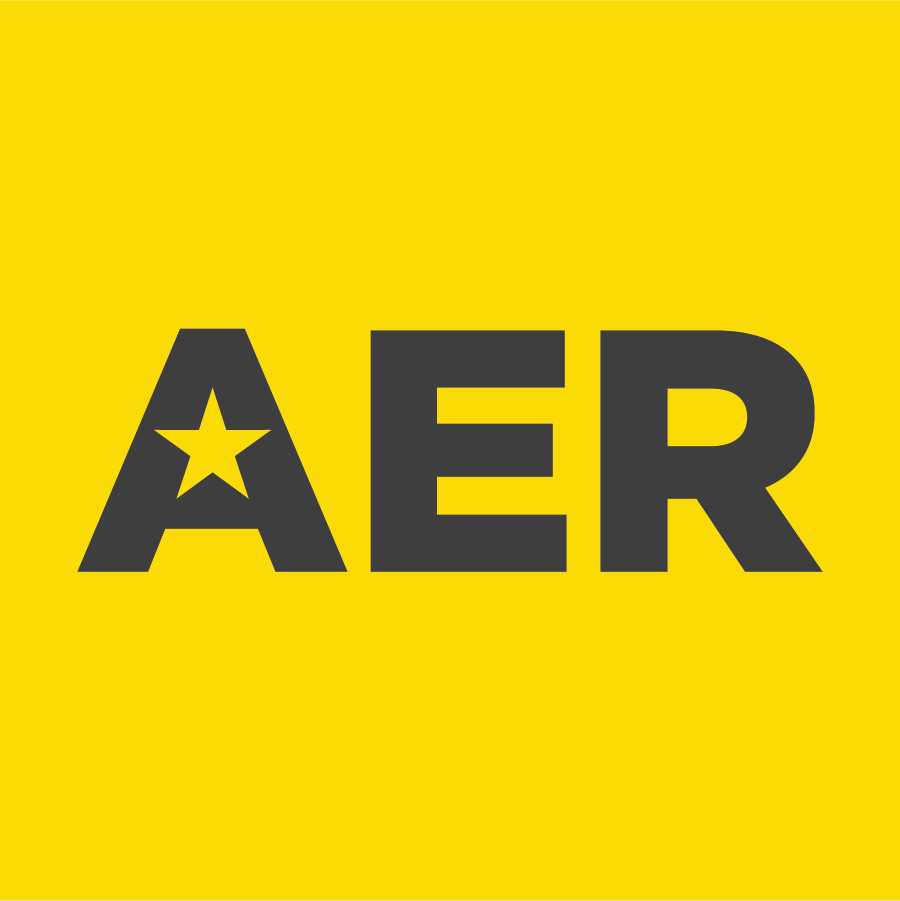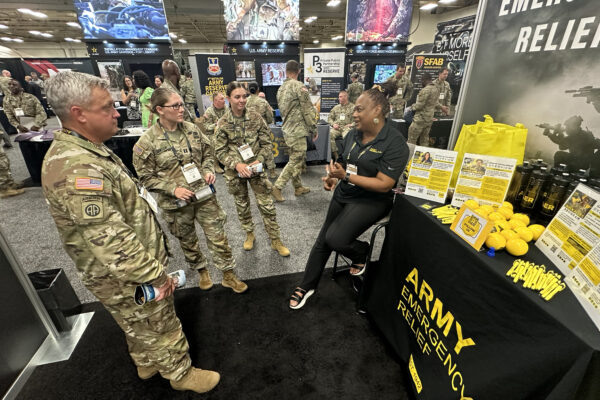How does AER’s Child Care Assistance Program work?
Families enrolled in the Army Fee Assistance program are eligible for up to $1,500 in child care assistance ($500 per month for three months) in addition to the assistance provided through the program. Families must be enrolled in the Army Fee Assistance program and demonstrate valid need through the completion of a budget.
What are Wounded Warrior Comfort Grants?
Soldiers medically evacuated from hostile fire or imminent danger area, peacekeeping operations or training exercises within CONUS receive immediate financial assistance. A $1,000 grant is provided at the time of hospitalization. AER has provided over $3 million in comfort grants since inception.
What is Survivor Assistance?
Surviving spouses and children of active and retired Soldiers are eligible for financial assistance through AER’s Survivor Assistance Program. Assistance is provided as a grant for an individual request. Monthly stipends may be provided for the most destitute. Contact your nearest AER officer to learn more or view the Survivor Assistance Program Rack Card.
What is the Wounded Warrior Assistance Program (AW2)?
Soldier for life! Army Wounded Warriors receive personal access to AER assistance. Applicants located within 50 miles of a military installation should visit the on-base military aid office for a consultation. Applicants not located within 50 miles of an installation should contact their AW2 advocate or AER HQ.
What is the Quick Assist Program?
AER’s most powerful program. Company commanders or first sergeants can approve financial assistance up to $2,000. Eighty-five percent of eligible requests can be met by the chain of command through the Quick Assist Program. Last year, 8,000 Soldiers received over $10 million in financial assistance from their chains of command. Give leadership the opportunity to help — talk to your chain of command.
Is financial counseling a prerequisite to receive AER assistance?
Army Community Services provides financial counseling with accredited financial counselors through the Financial Readiness Program.
Although financial counseling is not a prerequisite to receiving AER assistance, many AER officers are also accredited financial counselors and can provide financial counseling or refer individuals to FRP.
What can’t AER help with?
- Divorces
- Marriages
- Education expenses (AER provides scholarship assistance for spouses and children, however, AER does not provide zero-interest loans for education expenses)
- Purchase or lease of new or used privately owned vehicles and costs associated (taxes, registration, insurance and transportation)
- Travel of non-command-sponsored family members from the continental United States to overseas commands
- Ordinary leave or vacation
- Liquidation or consolidation of outstanding debts
- Business ventures or any similar investment
- Funds to replace those overdrawn from a bank account
- Civilian court fees, fines, judgments, liens, bail, legal fees and income taxes, except to prevent immediate privation of family members
- Goods or items for convenience, comfort or luxury
- Continuing assistance
- Abortion
Exceptions apply. Talk to your chain of command nearest AER officer.
What documents are required for a spouse to request AER assistance when the Soldier is unavailable?
A spouse or eligible dependent must have one of the required documents when requesting assistance on behalf of the sponsor:
- Special Power of Attorney
- Spouses or other authorized dependent must have a valid SPOA from their sponsor granting them authority to act as the sponsor’s attorney-in-fact to “establish, change or stop allotments” as required by Financial Management Regulation DoD 7000.14 – R, para 400803.
- Note: “A general power of attorney is not acceptable to establish, change or stop and allotment.” (FMR 7000.14-R, para 400803)
- Account Allotment and Authorization Form (AER Form 55)
- Allows active duty or retired Soldiers to provide one-time authority for a spouse or other eligible dependent to obtain financial assistance in the name of the Soldier when they are unavailable. Upon request, AER Form 55 will be initiated by the local AER officer. The AER officer will email the form directly to the active duty or retired Soldier for signature on behalf of the eligible family member.
- Email from the active duty Soldier’s .mil account stating they concur with the assistance, dollar amount and repayment
- Under no circumstance can a personal email account be used to provide concurrence.
When is the deadline to apply for a scholarship?
Applications for the Maj. Gen. James Ursano Scholarship for Children are accepted between Jan. 1 and April 1 each year.
There is not a deadline to apply for the Mrs. Patty Shinseki Spouse Scholarship Program. Applications are accepted year-round and processed based on the application cycle calendar located on the spouse scholarship page.
Are scholarships subject to taxes?
Your scholarship may or may not be taxable. Generally speaking, a scholarship or fellowship is tax-free if you are a degree candidate and the award is used to pay for tuition and required fees, books, supplies and equipment. However, there are some scholarship and fellowship opportunities that are not tax-exempt. Any amounts used to pay for room and board and a stipend for living expenses is taxable. There are also a variety of coordination restrictions that are intended to ensure recipients don’t double dip when taking advantage of the Education Tax Benefits. Tax forms will be provided by your college if they are required.
Relevant IRS publications include:
How are the award amounts determined?
The award amounts are determined after consideration of the following three variables:
- The Expected Family Contribution on the student’s Student Aid Report from the Free Application for Federal Student Aid
- The total number of completed scholarship applications received
- AER’s approved total budget
How will I be notified if I’m awarded a scholarship?
We communicate with all applicants via email. We send email notices by May each year notifying all applicants whether they were awarded scholarships.
Can I apply before I graduate from high school?
Children interested in the Maj. Gen. James Ursano Scholarship should apply for the upcoming college academic year during their senior years of high school.
If my sponsor is in the active Guard or Reserves, do I need to provide their orders?
The sponsor’s Title 10 orders are required for Soldiers who are active National Guard or active Reserve members. The service member must be on Title 10 orders for the full academic year for which they are applying for a scholarship.
What is required for transcripts?
Current high school seniors must upload transcripts showing coursework through the most recent fall term.
Returning college students must upload transcripts showing all college coursework through the most recent fall term.
Spouses who are enrolling in college for the first time and no longer have access to their high school transcripts may upload a letter of explanation in place of the required transcripts for consideration.
AER accepts unofficial transcripts. The transcript must include the school’s name, student’s name, all coursework as noted above and must not be editable.
What is the Student Aid Report?
The Student Aid Report is the report provided to the student when they complete the Free Application for Federal Student Aid. The SAR is required as part of the complete AER scholarship application.
We must receive the complete SAR. We do not accept:
- The FAFSA application summary report
- The FAFSA confirmation page or email
- Incomplete SAR
Can I email my supporting documents to apply for a scholarship?
You must upload all documents for your application through our application portal. Supporting documents are not accepted by mail or email.
What supporting documents are required to apply for a scholarship?
For most applicants, the required documents will include transcripts, a Student Aid Report and the sponsoring Soldier’s Leave and Earning Statement or DD214 (Certificate of Release or Discharge from Active Duty).
How many times can I receive a scholarship?
Dependent children may receive scholarship funds for four academic years of full–time study. Scholarships are awarded one year at a time, therefore applications must be submitted each year.
Spouses may receive scholarship funds for four academic years of full–time study or eight academic years of part–time study. Scholarships are awarded one year at a time, therefore applications must be submitted each year.
Is there an age limit to apply for a scholarship?
Applicants for the Maj. Gen. James Ursano Scholarship Program for Dependent Children must be under the age of 24. Eligibility ends when the dependent child turns 24. (Example: a student turning 24 in December would be eligible for the fall term only.)
There is no age limit for the Mrs. Patty Shinseki Spouse Scholarship Program.

